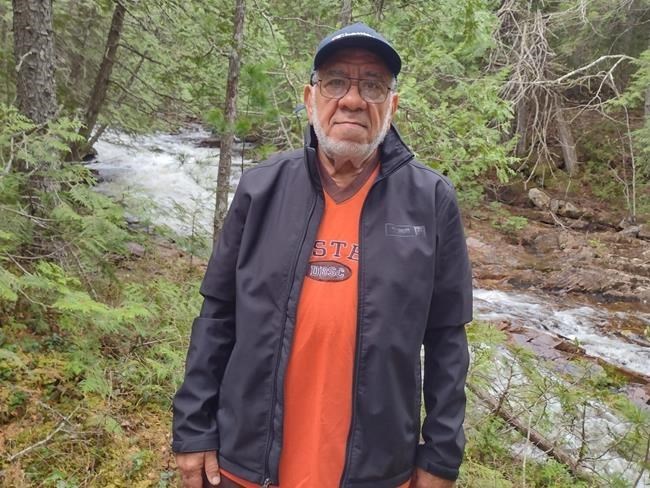OTTAWA — A Montreal man who was set to be deported from Canada to Egypt, where he faces a death sentence, was given a last-minute reprieve Wednesday as the federal immigration minister intervened in his case and prevented his removal.
Dr. Ezzat Gouda was ordered to return to Egypt by Nov. 1, despite claims that he would be persecuted and killed because of his political affiliations in the aftermath of the Arab Spring revolution.
Gouda, a retired obstetrician, said he showed Canadian officials court documents that prove he has been sentenced to death in Egypt, but was told they were too vague and insufficient for his refugee claim to be accepted.
He was found guilty in absentia in connection with two demonstrations that turned violent in 2013.
In a statement, he said that on the morning of his scheduled deportation, he feared he would be apprehended and killed when he landed in his home country.
"I woke up wanting to give up on life," Gouda said.
As he prepared to board a flight back to Egypt that day, he said he suffered a stroke and was taken to the hospital.
Later on Wednesday, Gouda said he learned in an email from the Canada Border Services Agency that Immigration Minister Marc Miller had stopped the deportation.
Miller declined to speak about the specific case, citing privacy and security concerns on Thursday.
"Clearly, when someone faces the real threat of the death penalty being imposed, which we are opposed to as a government, our government does need to act," Miller told reporters in Toronto.
"Obviously, for people fleeing persecution for various reasons, they need to be looked at on an individual basis."
Gouda expressed his gratitude to Miller and Quebec Liberal MP Sameer Zuberi, as well as to the Egyptian community and the Egyptian Canadian Coalition for Democracy for standing up for him.
Zuberi did not immediately respond to a request for comment.
Gouda told the Canada Border Services Agency that was a member of the Freedom and Justice Party in Egypt, which was affiliated with the Muslim Brotherhood group and came to power following the country's 2012 elections.
In 2013, Egypt's army chief seized power in a military coup against the elected party's government. Since then, Egyptian authorities have arrested thousands of the party's members and Muslim Brotherhood supporters, labelling them as terrorists.
After that, Gouda said his two sons were killed in pro-democracy, anti-military rallies. Men with weapons broke into his father's house, where he was staying with several family members, he said, and his clinic was destroyed.
He said he eventually fled to Djibouti in 2014, where he continued to work as a physician until he reached retirement age last year and had to leave because he wasn't allowed to work.
His wife and daughters had to remain in Egypt because their passports were confiscated, he said.
Gouda was denied a visa to Canada and instead entered the country at the unofficial Roxham Road crossing between Canada and the United States in March 2022.
He told immigration officials he feared living in the United States because of increased hatred and racism toward Muslims.
In December 2022, Gouda was denied refugee status in Canada, documents show, because he did not prove that he would face more than a mere possibility of persecution and risk to his life.
"I stood in support of democracy and against military rule," he said in a statement.
"I came here looking for safety but faced more persecution by the CBSA."
The news of Gouda's initial deportation came as a shock to Amr Magdi, a researcher in the Middle East and North Africa division at Human Rights Watch.
He said it's been 10 years since the military coup in Egypt, and there has been a large exodus of political activists from the country ever since.
"A lot of cases have been brought to my attention over the past few years," Magdi said in an interview on Thursday from his home in Berlin.
"The government doesn't release official statistics, but we believe that we are talking about tens of thousands who basically had to flee the country."
In most Western countries, asylum is an accessible option for those people, with a few exceptions, he said.
Egyptians who have been deported from countries with security ties to Egypt, such as Saudi Arabia or Kuwait, have been immediately apprehended and prosecuted, he said.
Human Rights Watch is not working directly with Gouda, but it has written to the Canadian government to ask that he be given some kind of status to remain in Canada.
Gouda, who is recovering at home, said he hopes he can stay safe and one day be reunited with his wife and daughters in Canada.
This report by The Canadian Press was first published Nov. 2, 2023.
Laura Osman, The Canadian Press



